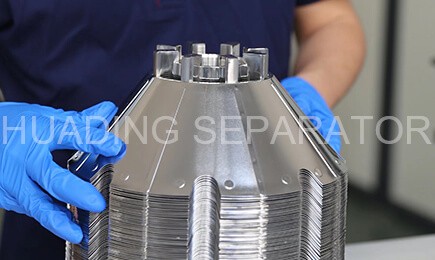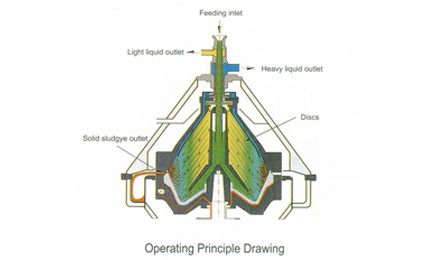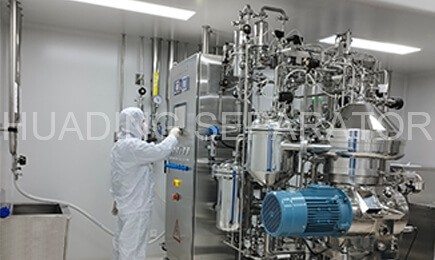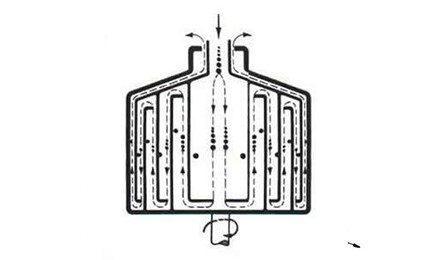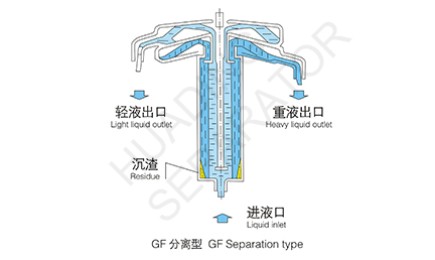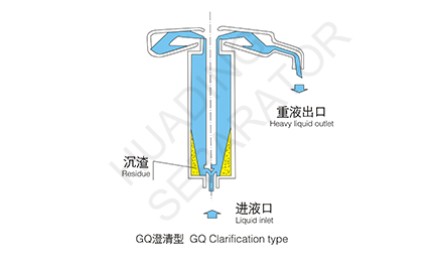Biochemicals, chemicals produced through biological processes, are becoming increasingly important as industries shift towards renewable resources. Many such products are made via fermentation or bioconversion, followed by complex separation and purification steps.
Typical biochemicals include organic acids, like citric and lactic acid, amino acids, enzymes, polysaccharide thickeners, yeasts and yeast extracts. Producing these compounds efficiently requires careful downstream processing to isolate and purify the target molecules from fermentation broths and biomass.
Huading Separator provides advanced centrifugal separation solutions designed to meet the unique challenges of biochemical production – from biomass removal and product extraction to purification and concentration.
How Centrifuges Support Biochemical Production
Modern centrifuges improve the downstream processing of biochemicals, ensuring high product yields and purity while improving process efficiency. By leveraging high rotational speeds and optimized designs, centrifuges can handle the diverse separation tasks in biochemical manufacturing, all while maintaining product quality and meeting industrial standards.
Purification and Extraction
| Application Type |
Description |
Equipment Used |
Benefits |
| Liquid-Liquid Extraction |
Separation of biochemical products (e.g., organic acids, antibiotics) from broth using solvents |
Disc stack centrifuges configured for liquid-liquid separation |
Fast phase separation, reduced solvent use, improved yield |
| Solid-Liquid Purification |
Product recovery after precipitation or crystallisation (e.g., acid salts, protein aggregates) |
Decanter centrifuges, mixers, and pumps |
Efficient product isolation, impurity removal, and batch consistency |
| Broth Conditioning |
Mixing of reagents (e.g., lime, pH adjusters) before separation |
Multi-purpose mixers and centrifugal pumps |
Enhances reaction uniformity and extraction efficiency |
| Polishing and Final Purity |
Final cleanup of product stream (removing haze, fine debris) |
Tubular centrifuges, pressure leaf filters |
Achieves high clarity, compatible with downstream refinement |
Centrifuges are also often used in combination with filtration and membrane systems to achieve required purity levels. Their ability to handle liquid-liquid, solid-liquid, and solid-liquid-liquid separation makes them essential for biochemical purification.
Applications in Biochemical Production
Centrifugal separation technology is applied across a broad spectrum of biochemical manufacturing processes. Virtually any biotech-derived chemical or biomaterial that requires separation of liquids and solids can benefit from disc separators, decanters, tubular centrifuges, and related equipment. Below are key applications and product areas in which Huading’s separation solutions play an indispensable role:
Why Choose Huading for Biochemical Production?
Huading combines decades of separation expertise with a strong understanding of biochemical processes. Our wide range of centrifuges, clarifiers, filters, and mixers are engineered to handle sensitive bio-based products while meeting industry hygiene and compliance standards.
From organic acids to enzymes, we help manufacturers improve yield, clarity, and efficiency at every stage. Choosing Huading means investing in reliable, energy-efficient, and scalable separation solutions tailored to your production needs.






